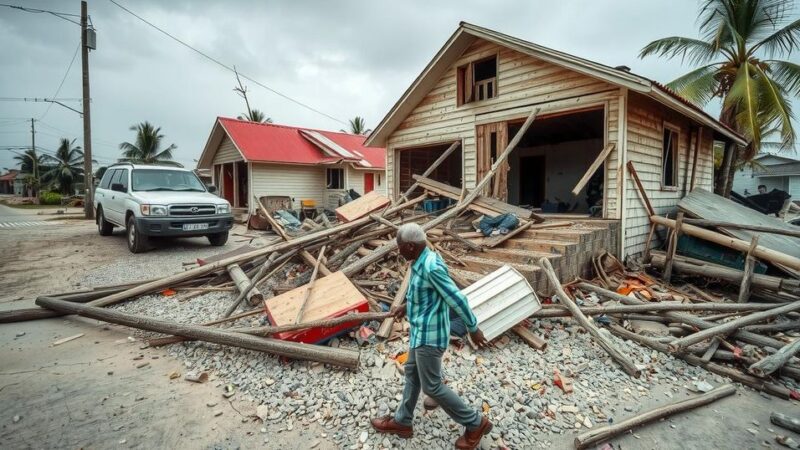The COP29 climate talks highlighted systemic flaws in the UN climate negotiation process, leading to a lack of meaningful outcomes in addressing fossil fuel dependency and climate finance. Reforming the COP structure is urgently needed to foster substantive agreements and focus on investment in clean energy, thereby enhancing global efforts to combat climate change effectively.
Recent discussions surrounding the COP29 climate talks, held in Baku, Azerbaijan, have highlighted fundamental flaws within the United Nations climate negotiation process. Despite attempts to address critical issues such as fossil fuel dependency and climate finance, many matters remain unresolved, reflecting a slow and cumbersome approach to global climate action. The mechanism governing these annual negotiations is often perceived as ineffective, resulting in a focus on procedural outcomes rather than substantial agreements. However, there remains a pressing need to reform this process to ensure meaningful progress against climate change.
The COP meetings, now spanning more than two decades, serve as a critical platform for international discourse on climate action. As global leaders navigate pressing crises such as the COVID-19 pandemic and geopolitical tensions, it is essential that climate change retains urgency on the global agenda. Investments play a pivotal role in this context; redirecting funds toward clean energy solutions is crucial for combating carbon emissions and fostering sustainable development. The COP process aims to influence these investments, yet recent challenges, including resistance from fossil fuel-dependent nations, illustrate ongoing barriers to progress.
One significant issue identified within the COP talks is the fragmented nature of negotiations, which often limits effective collaboration. Suggestions for reform include implementing more frequent and localized discussions, establishing consistent accountability among negotiators, and enhancing regional networking. Furthermore, collaborative efforts amongst ambitious nations could catalyze actionable commitments in the face of climate emergencies. These strategies not only prioritize substantive outcomes but also aim to invigorate the momentum necessary to overcome entrenched interests that hinder progress.
Ultimately, the need for renewed political will is paramount. The climate crisis demands international unity and a collective response that transcends individual national interests. As challenges intensify, fostering a comprehensive and effective climate negotiation framework will be essential to ensure that critical climate targets are met and that ambitious commitments lead to tangible environmental improvements.
The COP framework remains vital to global climate action, yet it necessitates significant reform to address its inherent deficiencies and to adapt to the ever-evolving landscape of climate impacts priorities.
In conclusion, while COP talks face significant challenges, strategic reforms and a renewed commitment toward substantive outcomes could enhance their effectiveness, thereby fostering a collaborative environment conducive to tackling the pressing issues associated with climate change. By shifting focus from procedural matters to actionable commitments, there exists an opportunity to accelerate progress in combating this global crisis.
The COP29 climate talks, part of the ongoing United Nations framework for addressing climate change, concluded without significant breakthroughs despite the intensive discussions. The context of these talks is colored by historical reliance on such meetings to drive international action against climate change since 1995. However, various interruptions including the pandemic and geopolitical crises have diverted focus from climate issues, creating an urgent necessity for the world to rally around effective climate strategies and uphold commitments against fossil fuel emissions.
The COP talks are essential for galvanizing attention on climate change and fostering international collaboration; however, there is a critical need for reform. By focusing on substantive outcomes, embracing new negotiation methods, and emphasizing investment in clean energy, future COP gatherings could significantly enhance their impact. The world must emerge from COP meetings with actionable strategies to meet climate commitments, ensuring the sustainability of our global environment.
Original Source: theconversation.com







